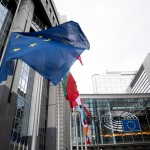The concerted EU initiative directed by the European Commission’s Directorate-General for Health and Food Safety (DG SANTE) was conducted in collaboration with national authorities from 18 EU Food Fraud Network nations, the European Anti-Fraud Office (OLAF), and the European Commission’s Joint Research Centre (JRC), OLAF said in a statement.
The ‘From the Hives’ operation targeted honey imports into the EU, identifying suspicious import or export operators through an initial phase of collecting honey samples at border points of entry in participating countries, followed by a second phase – intelligence-gathering backed by OLAF.
“The most frequent type of fraud with honey happens via adulteration, meaning by adding cheap ingredients instead of keeping the honey pure,” according to Director-General of OLAF, Ville Itälä.
He stressed that OLAF has also found “instances of origin fraud, with labels claiming false origins of the product.”
The probe revealed that 133 businesses – 70 importers and 63 exporters – were engaged in consignments of honey suspected of being adulterated. They added water or inexpensive sugar syrups to increase the honey’s volume.
According to the European Commission’s Food Safety, the operation confirmed that a significant part of honey imported into the EU is suspicious of not complying with the provisions of the “Honey Directive” – 46% based on 320 samples, most coming from China.
Food Safety also highlighted the fact that honey imported from the United Kingdom had a 100% suspicion rate – “likely the result of honey produced in other countries and further blended in the U.K. before its re-export to the EU.”
The agency stated that 44 EU operators have been investigated and seven sanctioned so far.
While the risk to human health is rather low, OLAF warned that adulterated honey and false labels mislead customers and put honest manufacturers at risk since they face unfair competition from operators who may drop costs due to illicit, cheap ingredients.
According to the EU anti-graft agency, the EU average unit pricing for imported honey in 2021, when the survey was conducted, was 2.32 €/kg (US$2.51 per kilogram), whereas sugar syrups manufactured from rice were roughly 0.40 - 0.60 €/kg ($0.43 to $0.65 per kilogram).
The operation, according to the OLAF head Itälä, also served to raise attention, call for order, and deter any fraudulent practices.



